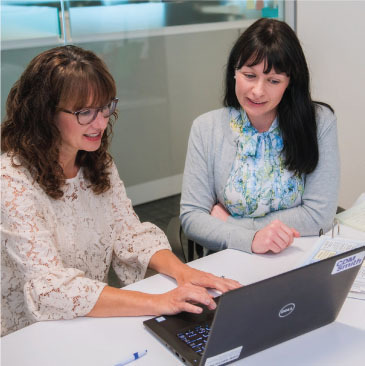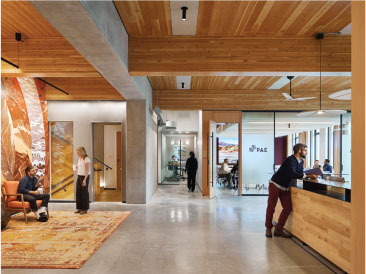November/December 2019
Communities: Private Practice
Rise of AEC Megaprojects Creates a Project Delivery Culture Shift
 The days of small-scale construction projects are not gone, but megaprojects are trending upward and forcing owners and project teams to adapt, according to a whitepaper from management consulting firm FMI.
The days of small-scale construction projects are not gone, but megaprojects are trending upward and forcing owners and project teams to adapt, according to a whitepaper from management consulting firm FMI.
Between 2013 and 2018, the annual value of US megaproject starts increased from 3% to nearly 33% of all construction project starts, according to the paper. The organization believes that annual construction put in place on megaprojects during the next decade will increase by nearly 600%—from $50 billion to over $350 billion. About 320 megaprojects have been awarded since 2012 and nearly 700 are being planned.
Megaprojects, according to the whitepaper, are creating a culture shift that is compelling owners and project stakeholders to engage much differently than on traditional smaller projects. The culture shift involves a “one-unit” mindset that emphasizes a shared sense of purpose and a fair business model rather than operating as territorial and separate entities. The research identifies five ingredients to successful project collaboration and delivery.
Trust
Research participants indicated that trust is extremely important to project success. Trust allows stakeholders to freely share information, collaborate, and leverage one another’s skills and abilities productively. When trust is missing, people become withdrawn and disengaged while collaboration and productivity can suffer.
What are some ways to improve trust? Investing time upfront in selecting the right team members and holding meetings and gatherings; educating each other on how each organization functions, including an honest assessment of strengths and weaknesses; and establishing challenging, but easily attainable goals early on and meeting them.
Cohesion and Collaboration
A study of more than 200 projects found that cohesion and collaboration facilitate success. Early involvement of team members (and owners creating a collaborative environment) was more influential in driving success than the contract type. The research also uncovered that qualifications-based selection generated positive project outcomes, whereas price-based selections resulted in less positive project performance.
Transparent and Authentic Leadership
Good leadership plays a crucial role in the success or failure of megaprojects. It is the foundation that drives a culture of trust among project stakeholders. Research participants all pointed out that megaproject teams require a different type of leadership culture—one that is flexible, open, and transparent.
Developing such a culture takes time and requires authenticity from all participants. Effective megaproject leaders are experts in developing a team environment that fosters emotional engagement, shared purpose, and accountability, and is safe for constructive feedback and open discussions (versus blaming). This type of leadership culture ideally exists across all project levels and across all organizations involved in a megaproject.
Nimble and Autonomous Teams
According to the study, megaproject stakeholders routinely centralize decision-making to minimize project complexity and quell anxieties. This can lead to bureaucratic gridlocks and cost project stakeholders millions of dollars daily. Effective megaproject teams are breaking out of this mold and setting up smaller, more nimble project teams that can move quickly. Like the platoon model for marines, these teams enjoy a certain degree of autonomy and are empowered to make decisions without approval from the top at each decision point.
A top-down hierarchical leadership structure, where one centralized project leader is a single point of responsibility, is no longer viable on these complex megaprojects. The leadership roles must always focus on enabling leadership and remaining agile and adaptable.
Educated and Experienced Owner
Megaprojects benefit from skilled and experienced owners who can establish credibility with A/Es, contractors, and the rest of the supply chain. Projects can get derailed from the start if the owner doesn’t have experience with the project delivery system. Many research participants worked in construction or design before taking on owner roles. Because of this experience, they had intimate knowledge of how contractors and designers approach risk allocation, cost estimating, and scheduling. They also brought more of a partnership approach to the project rather than an adversarial attitude.
Access the white paper Megaprojects: Changing the Conversation at www.fminet.com.


 Volunteering at NSPE is a great opportunity to grow your professional network and connect with other leaders in the field.
Volunteering at NSPE is a great opportunity to grow your professional network and connect with other leaders in the field. The National Society of Professional Engineers (NSPE) encourages you to explore the resources to cast your vote on election day:
The National Society of Professional Engineers (NSPE) encourages you to explore the resources to cast your vote on election day:






